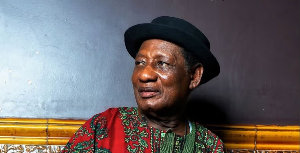- Standard Bank Research
Seasoned economic analysts are predicting the Ghanaian cedi will strengthen further into 2010 on improved economic fundamentals in the local economy, and as a result of an expected weak performance of the dollar.
Stephen Bailey-Smith, Head of Standard Bank’s CEEMEA Research, projects the Ghanaian cedi will continue to strengthen against major trading counterparts for the remaining periods of the year and deep into 2010.
He explains that the current appreciation in the cedi comes on the heals of a tight fiscal and monetary policies.
Mr Bailey-Smith further foresees the world’s number one currency, the dollar, weakening further next year, a situation he explains does not result solely from the US economic situation but also the declining use of the currency in most emerging economies, creating excesses of the green back in those regions.
A weak dollar will continue to impact positively on the local cedi as it is the most sort-after currency for international transactions in Ghana.
Mr Stephen Bailey-Smith made these observations when he addressed participants of a seminar on currency and interest rate dynamics.
The seminar saw corporate treasurers, finance directors, senior managers and customers of Stanbic Ghana brainstormed on currency and interest rate dynamics in the country and their impact on businesses.
Organised by Stanbic Bank’s Global Markets Department, the seminar took participants through the basics of hedging on both interest rates and currency risks.
Mr Stephen Bailey-Smith observed that the global economic shock was muted in Ghana as a result of favourable prices of Ghana’s major exports, Gold and Cocoa, adding that stability in the crude market also made positive impact on the fortunes of the Ghanaian economy.
He noted that there has been stark improvement in the country’s current account position.
Despite an easing in growth estimates, the economist observed that Ghana remains on the path of steady growth as “the rate of 7.3 per cent recorded in 2008 was outside the trend growth and as a result came along with high inflationary pressures.”
Considering the risk to stability moving forward, he noted that oil could rise to between $120 and $150 per barrel, but was quick to add that “we do not expect the kind of levels that saw the country’s energy bill soar to $2 billion in 2007.”
He predicted an average $85 per barrel, for most periods of 2010.
Speaking to the Financial Intelligence in a latter interview, Mr Stephen Bailey-Smith expressed the conviction that the upcoming oil would further improve Ghana’s economic situation next year, contributing three and half per cent to GDP in the first few years commercial drilling.
He however called for the prudent utilization of oil revenues, citing the introduction of stabilization and future generation funds to ensure fiscal responsibility and inter-generational equity.
Ernest Addison, Director of Research, Bank of Ghana, gave the assurance that the monetary authority would continue to monitor closely domestic and global developments to chart the appropriate course that would sustain macro-stability at all times.
The research boss observed that an expansionary fiscal policy had seen significant growth in the Ghanaian economy in 2008, with an attendant high inflation, adding that, “a tight monetary policy has since been put in place to support government’s efforts at fiscal consolidation”.
Giving the rational for the recent cut in the Bank’s prime rate, Dr Addison explained that the central bank’s survey showed significant evidence of a slow down in economic activity following the tight policy stance.
“Banks had moved away from financing consumer spending, there was a drop in the number of advertised vacancies, business and consumer confidence pointed downwards. The signs of a slowdown were conclusive.” he said.
The macroeconomic and fiscal stabilization measures implemented by the government have led to a significant reduction in both the fiscal and external deficits, and enhanced the country’s foreign reserves position. These have also had significant positive impact on the cedi.
The free fall experienced by the cedi in the first half of the year has seen a reversal.
The rate of depreciation in the cedi to the dollar on the Interbank market has declined sharply from 5.4 per cent in January 2009 to 0.9 per cent in July. The Cedi however appreciated to the dollar in August by 1.7, in September by 0.7 per cent, in October by 0.6 per cent and in November by 0.7 per cent.
On the Interbank market last week, the cedi traded stronger to the dollar, pound and euro, recording cumulative weekly appreciations of 0.74, 2.62, and 1.71 per cent respectively.
Business News of Friday, 18 December 2009
Source: financial intelligence (charles k. amoah)
Cedi to emerge stronger in 2010
Entertainment











